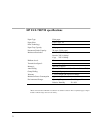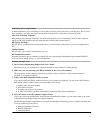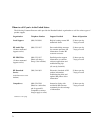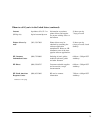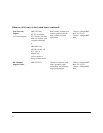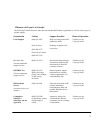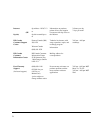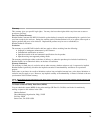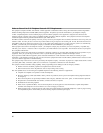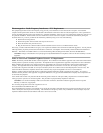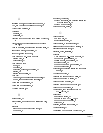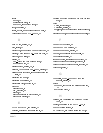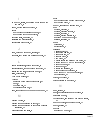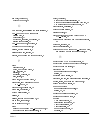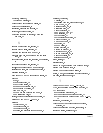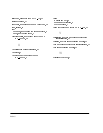
80
Notice to Users of the U. S. Telephone Network - FCC Requirements
This equipment complies with FCC rules, Part 68. On this equipment is a label that contains, among other information, the FCC Registration
Number andRinger Equivalence Number (REN) for this equipment. If requested, provide this information to your telephone company.
An FCC compliant telephone cord and modular plug is provided with this equipment. This equipment is designed to be connected to the
telephone network or premises wiring using a compatible modular jack which is Part 68 compliant. This equipment connects to the telephone
network through the following standard network interface jack: USOC RJ-11C.
The REN is useful to determine the quantity of devices you may connect to your telephone line and still have all of those devices ring when your
number is called. Too many devices on oneline may result in failure to ring in response to an incoming call. In most, but not all, areas the sum
of the RENs of all devices should not exceed five (5.0). To be certain of the number of devices you may connect to your line, as determined by
the REN, you should call your local telephone company to determine the maximum REN for yourcalling area.
If this equipment causes harm to the telephone network, your telephone company may discontinue your service temporarily. Ifpossible, they
will notify you in advance. If advancenotice is not practical, you will be notified as soon aspossible. You will also be advised of yourright to
file a complaint with the FCC.
Your telephone company may make changesin its facilities, equipment, operations, or procedures that could affect the proper operation of your
equipment,. If they do, you will be given advance notice so you will have the opportunity to maintain uninterrupted service.
If youexperience trouble with this equipment, please contact the manufacturer, or look elsewhere in this manual, for warranty or repair
information. Your telephone company may ask you to disconnect this equipment from the network until the problem has been corrected or until
you are sure that the equipment is not malfunctioning.
This equipment may not be used on coin service provided by the telephone company. Connection to party lines is subject to state tariffs. Contact
your state's public utility commission, public service commission, or corporation commission for more information.
This equipment includes automatic dialing capability. When programming and/or making test calls to emergency numbers:
:
Remain on the line and briefly explain to the dispatcher the reason for the call.
:
Perform such activities in the off-peak hours, such asearly morning or late evening.
FCC rules prohibit the use of non-hearing aid compatible telephones in the following locations or applications:
:
All public or semipublic coin-operated or credit card telephones.
:
Elevators, highways, tunnels (automobile, subway, railroad or pedestrian) where aperson with impaired hearing might be isolated in
an emergency.
:
Places where telephones are specifically installed to alert emergency authorities such as fire, police, or medical assistance personnel.
:
Hospital rooms, residential health care facilities, convalescent homes, and prisons.
:
Workstations for the hearing impaired.
:
Hotel, motel, or apartment lobbies,; in stores where telephones are used by patrons to order merchandise; in public transportation
terminals where telephones are used to call taxis, or to reserve lodging or rental cars.
:
Hotel and motel rooms. At least ten percent of the rooms must contain hearing aid compatible telephones; or jacks or plug in hearing
aid compatible telephones which will be provided to hearing impaired customers upon request.



